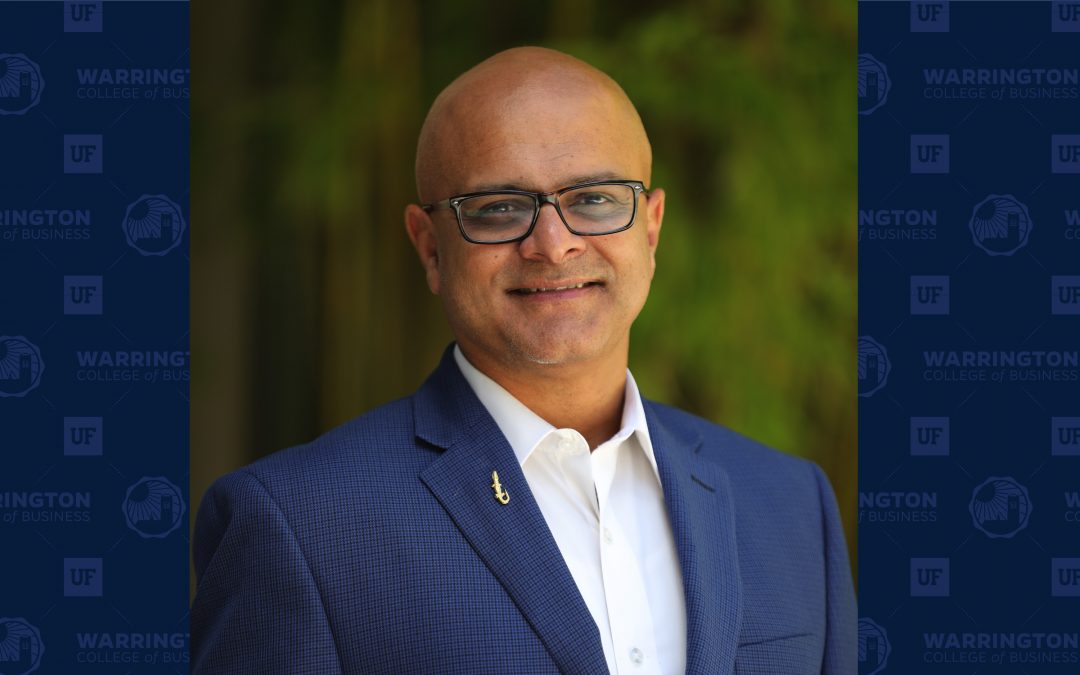DBA student to present AI research at prestigious world conference
Rahul Banerjee (DBA ’25) was recently selected to present his dissertation “Can AI truly learn? The role of consumer’s lay beliefs in algorithmic aversion,” at the Global Information Technology Management Association (GITMA) Conference in Sakarya, Turkey.
It is rare for DBA students to have their research accepted to present at conferences, specifically before they graduate. Banerjee is absolutely thrilled to present among some of the latest and greatest discoveries in technology adoption.
“Having the opportunity to present is particularly meaningful since it allows us to share these findings with researchers and practitioners who are equally passionate about making AI trustworthy and accessible,” Banerjee said.
The GITMA Conference has brought together researchers and informational technology professionals from across the world for 22 years. This annual conference expands to over 60 universities across 15 countries and three continents to network, collaborate and introduce opportunities for further growth in their areas of expertise.
When deciding to pursue an DBA at the University of Florida, it was more to him than a credential, it was finding the right platform to answer his academic questions to bridge the gap between theory and practice. Additionally, the residency format allowed Banerjee to continue in his leadership role as the Global Go to Market leader for Technology Transformation Services at Wipro while pursuing his academic research.
“You need curiosity to pursue the program,” Banerjee said. “The program gives you all the tools you need. This program rounds you off completely and makes you a practitioner that understands the underlying theory.”
Through Banerjee’s professional career he has gained a unique perspective of how technology can transform businesses, specifically through machine learning and artificial intelligence (AI). His desire for research emerged from the observation that there are varying levels of technology adoption and value realization across organizations. From this, he observed a pattern: even when AI systems outperformed traditional methods, people would still prefer human decision-makers, also known as algorithmic aversion. This sparked his interest in discovering why some people embrace AI and technology whereas others are more hesitant.
Banerjee partnered with marketing faculty member and City Furniture Professor Aner Sela to explore if people’s beliefs of intelligence about an individual’s learning ability translates to their beliefs about the intelligence of AI agents.
“Our research shows that people who believe in growth and learning are more likely to give AI the chance to prove itself,” Banerjee said. “Individual mindset plays a significant role in their perception of AI learning abilities which impacts their willingness to adopt AI.”
His research also discovered that context, cultural attributes and psychological factors all influence the perception of AI learning abilities along with a direct causal relationship between the mechanisms to make AI more human-like and in individual’s willingness to adopt it.
Banerjee’s conclusions raised the question: “Can you move from merely perceptions (informed by lay theories of mindset) to perspective (consider other experiences and challenge your assumptions)?” AI will impact every one of us creating new opportunities and challenges, so perseverance, practice and celebrating effort are critical to growing one’s mindset, specifically regarding AI.
Banerjee is anticipated to complete this program and earn his DBA this summer.
“This program has prepared me to step into the practitioner-researcher role looking at industry issues through a practical and theoretical lens,” Banerjee said. “I am looking forward to collaborating with organizations and communities to co-create solutions with evidence and lived experiences to apply in the real world. And beyond the academics, the relationships I’ve built—with faculty, peers and mentors—have been incredibly influential.”
Post-graduation, Banerjee plans to continue more research in AI perception and technology transformation.
“The more I learn, the less I know. Therefore, I have to study some more and apply it in the real world. I don’t want my research to sit on a shelf—I want it to live in the work I do and make a tangible impact.”
Banerjee’s future aspirations also extend from his passions, primarily in giving back to his community. He currently volunteers as Business Mentor at SCORE Mentors Jacksonville, a platform that allows professionals to offer free resources, perspective and guidance to entrepreneurial startups. Banerjee desires to do the same for the UF community, potentially in a teaching or advisory position where he can teach his students how to use AI knowledgeably and ethically.
Banerjee would like to thank his mentors at work, his classmates and his family for their continual support throughout his program. Additionally, he would like to thank faculty members Karen Ehlers and Phillip Podsakoff for their encouragement for perseverance and their commitment to learning, making this program one of the finest in the country.
Above all, he would like to thank Aner Sela, his advisor and dissertation chair.
“I would not be where I am today without him. His mentorship, guidance and encouragement throughout my doctoral studies has profoundly impacted my work. I would certainly want to continue to work with him as we explore the boundaries of how consumers make choices when it comes to interactions with AI.”
Banerjee will present his findings at the GITMA Conference in Sakarya, Turkey from June 2 to June 4, 2025.




